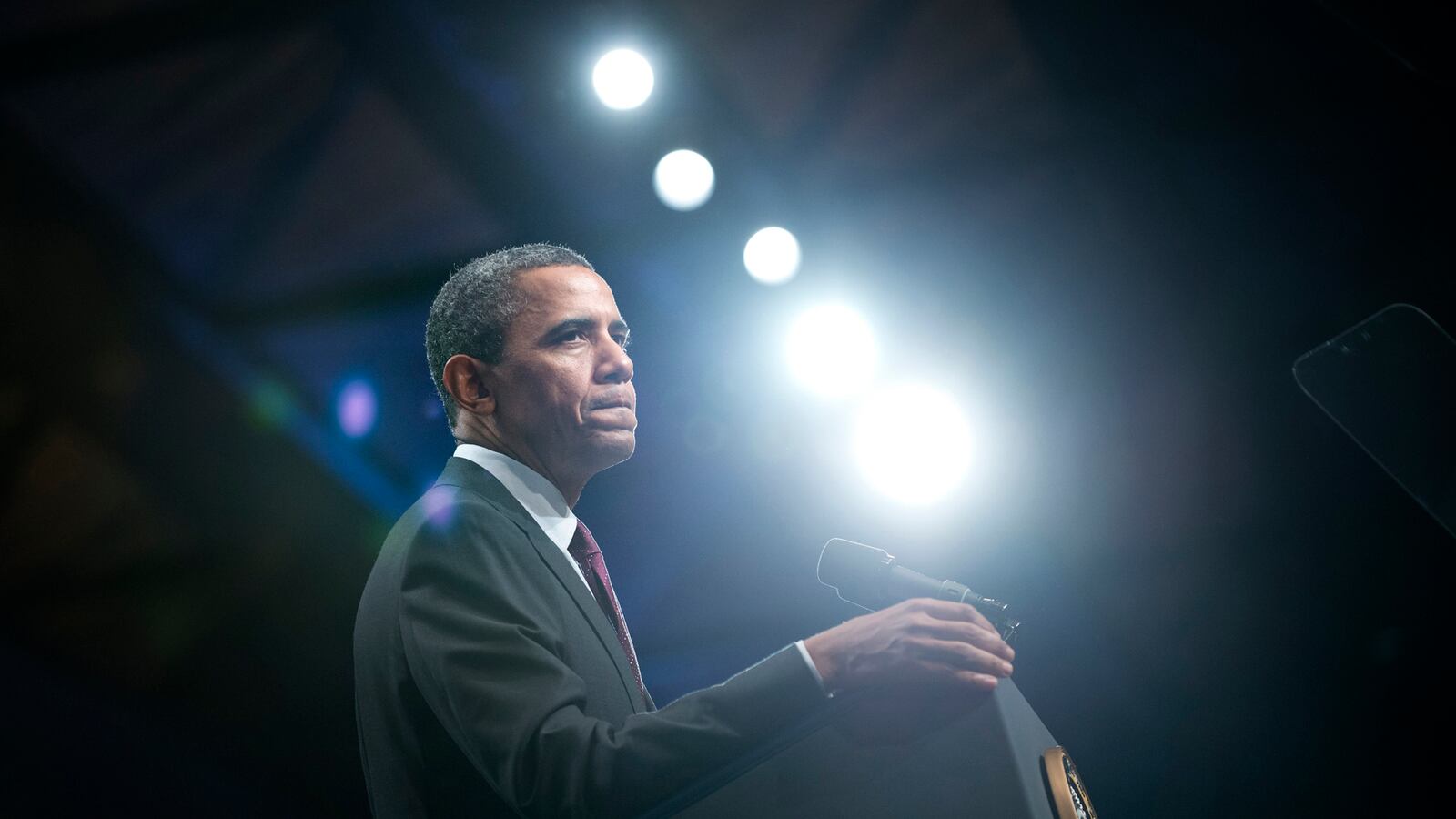
The Supreme Court tried to strike a reasoned compromise Monday, upholding federal supremacy over immigration while also empowering states to identify immigration lawbreakers in the course of other law enforcement.
Since, however, the federal government is supreme, state policing of immigration depends crucially on federal cooperation. After the Supreme Court delivered its ruling, the Obama administration declared that such cooperation would not be forthcoming:
In a conference call with reporters, an administration official said the administration will not allow Arizona's immigration priorities to become the Department of Homeland Security's priorities.
"We have limited resources. It doesn't make sense ... to spend those resources in a scattershot or random fashion. Instead they need to be focused on individuals who pose a public safety threat or challenge the integrity of our borders, and going forth that is how we anticipate handling our response to ... Arizona's law," he said.
The official said while DHS expected more calls from Arizona authorities, it will not increase staffing in Arizona to deal with them.
Accordingly, he said, federal officials will not respond to the scene of state or local traffic stops or similar law enforcement encounters to enforce immigration laws unless the individual meets DHS enforcement priorities. To meet those priorities, the individual must be a convicted criminal or a recent border crosser, or must have been removed from the U.S. previously and re-entered unlawfully.
DHS will continue to comply with its legal requirement to verify, by telephone, the individual's immigration status, officials said.
In other words, if Arizona police stop a car for legitimate reasons, DHS will tell police that yes the driver is present illegally—and then tell them that nothing will be done about it.
The core problem that SB 1070 was intended to address was the federal government's slack enforcement of immigration laws—and the Obama administration has just defiantly affirmed that it intends to go slacker than ever.
Not only that, but, in a fit of pique:
The administration also said it is rescinding the so-called 287(g) agreements with the state of Arizona that allowed some local police departments to enforce federal immigration laws.
Under the 287(g) program, state and local law enforcement agencies entered into a partnership with DHS's Immigration and Customs Enforcement and were delegated authority for immigration enforcement within their jurisdictions.
The program was initiated under the Bush administration, which heralded it as a top immigration enforcement tool. But the progam has fallen into disfavor with the Obama administration, which said in its 2013 budget proposal that it intended to phase out the program, an administration official said.
Which routes us back to the beginning of the story. Under five presidents, the federal government has made it clear that it has scant interest in preventing illegal immigration as such, but only illegal immigration when combined with some other serious crime.
When the Supreme Court authorized states to lend their personnel to the enforcement effort, in conjunction with regular state police functions, the Obama administration reacted punitively against the state that is perhaps most affected and most willing.
At the same time, workplace enforcement continues to lag.
So now we have a political question. For its first 3 years, the Obama administration cracked down on many categories of illegal aliens, removing upward of 1 million. The dreadful economy deterred some illegal immigration and encouraged many other illegals to return home. Now, however, as we enter the re-election zone, the administration is shifting course—and is signaling that, if re-elected, it will not continue the relatively tougher policy.
It wants immigration as a voting issue—and it will get it.





